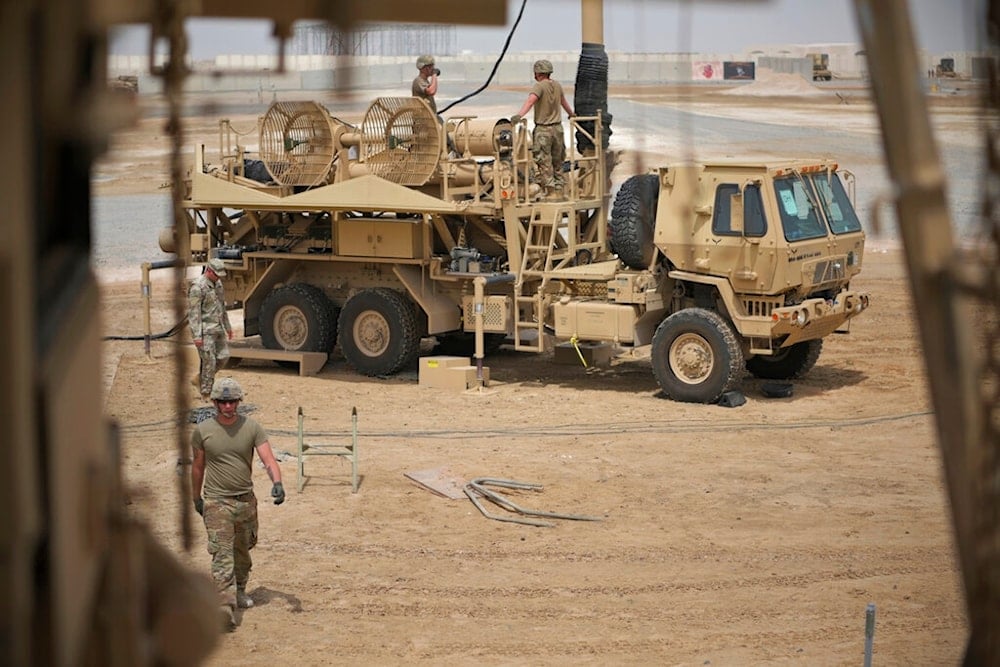US welcomes Japan Patriot missile transfer to replenish own stocks
Recently, Japan has been re-militarizing in the face of growing escalations in the Sea of Japan and concerns on the part of the US over China's regional influence.
-

In this photo released by the U.S. Air Force, U.S. Army troops work near a Patriot missile battery at Al-Dhafra Air Base in Abu Dhabi, United Arab Emirates, May 5, 2021. (AP)
US National Security Advisor Jake Sullivan announced on Friday the White House's approval of Japan's decision to transfer its Patriot interceptor missiles to replenish US stocks.
This move comes as Washington faces challenges in meeting requests from both Ukraine and "Israel" for assistance in enhancing their air defense capabilities.
"We welcome the Government of Japan’s announcement today that it will transfer Patriot interceptor missiles to the United States to replenish U.S. inventories. This decision will contribute to the security of Japan and to peace and stability in the Indo-Pacific region by ensuring that U.S. forces, in close cooperation with the Japan Self-Defense Forces, will continue to maintain a credible deterrence and response capability," Sullivan said in a statement.
In October, the Biden administration revealed its plan to dispatch extra air defense capabilities, which encompassed multiple Patriot battalions, to the Middle East in response to the intensification of the Israeli-Palestinian conflict.
Read more: Japan, US to jointly-develop anti-hypersonic interceptor
Recently, Japan has been re-militarizing in the face of growing escalations in the Sea of Japan and concerns on part of the US over China's regional influence.
Japan has even called on the US to supply it with nuclear weapons in August this year.
But since the war on Gaza broke out, the US has encountered challenges in balancing aid between Ukraine and "Israel".
US stockpiles of weapons have likely been affected as a result of this.
Not only did the war on Gaza shift the focus of US foreign policy away from Ukraine, but it has also strained the Biden administration's reputation overseas.
Despite that US President Joe Biden called out the Israeli regime over the excessive use of force, the US affirms that it maintains unwavering support for "Israel."
Because of this, regional tensions have mounted, especially in Syria where US occupation bases are now being attacked frequently by resistance groups.
The US is especially preoccupied by the disruptions in supply chains caused by interventions from the Yemeni resistance on ships transiting the Red Sea.
Washington recently attempted to convince Gulf partners to form a coalition against Yemen, but some disagreements seem to arise in the process.
Nevertheless, the Yemeni resistance has already made it clear that it is not intimidated by the naval coalition, and will continue to lead the fight in solidarity with the people of Gaza.
Read more: If US attacks Yemen, its battleships will be struck: Sayyed al-Houthi

 3 Min Read
3 Min Read








